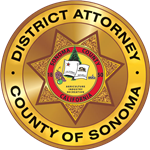Juvenile Unit
The Office of the District Attorney is responsible for presenting evidence in Juvenile Court of the delinquent activity of minors within Sonoma County. This includes screening cases for informal supervision, diversion, certification to adult court and prosecution in the juvenile courts.
A minor is defined as an individual who is under the age of 18. All minors under 18 years old are subject to the original jurisdiction of the Juvenile Court. The Juvenile Court may have jurisdiction past the age of 18 if the Court declares the minor to be a ward.
The case of a minor who commits a criminal violation is handled in juvenile court, unless the criminal offenses are serious enough to be filed directly as an adult or the juvenile court determines they should be handled as adults. The proceedings are not generally open to the public and information regarding the proceedings is generally considered confidential. Juvenile trials are called "jurisdictional hearings," and verdicts are called "adjudications." They take place in front of a judge or commissioner without a jury.
In a juvenile court hearing, the deputy district attorney appears on behalf of the People of the State of California. The District Attorney’s Office is also responsible for monitoring petitions on chronic truants. Unlike adult criminal court proceedings, the goal of juvenile delinquency law is to rehabilitate the minor, not necessarily punish or incarcerate. The minor is represented by an attorney. The primary duty of the prosecutor is to seek justice in light of the special interests and needs of the juvenile as well as the safety and welfare of the community.
The purpose of the Juvenile Court is to provide for the protection and safety of the public and each minor under its jurisdiction, and to preserve and strengthen the minor’s family ties whenever possible. Removing the minor from the custody of his or her parents is done only when necessary for his or her welfare or for the safety and the protection of the public.

 Translate
Translate